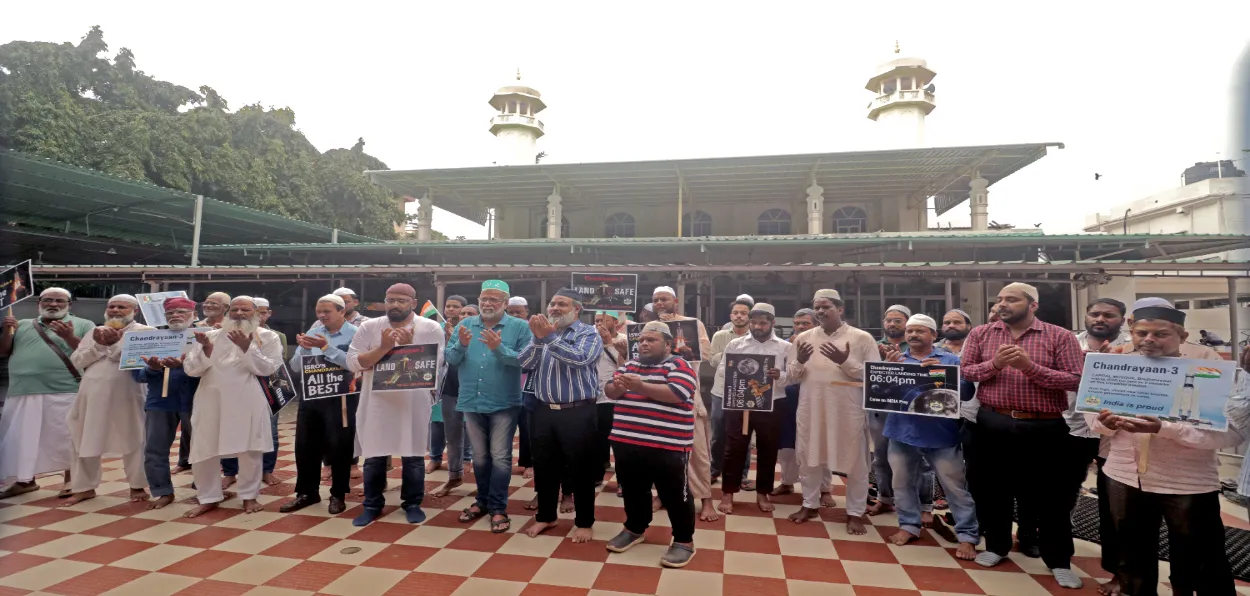
Dr. Hafeezur Rahman
Islam is a progressive religion, with a modern outlook and emphasizes peaceful coexistence, tolerance, and social harmony. To achieve these noble objectives Islam enjoins its followers to be mindful of the rights – of the Creator (Allah) and the Created (Human Beings). Allah’s rights essentially imply His unshared worship in the way He prescribes. The human rights concern, the family and social relations. Both of these rights enjoy equal footing. Even a slight violation of any one of them invites God’s wrath and rage.
For Muslims, one of the preconditions to enter Paradise is to come clean on human rights. In case anyone is wronged, in any manner whatsoever, Islam confers the bereaved person the right to avenge. What if you obediently and dutifully follow Allah’s command, however, in case, even if you marginally fall short on the human rights scale, rest assured, hellfire is your destiny. For the victim, the only way out is to forfeit his claim on the Day of Judgment – a highly unlikely scenario.
For human consumption, Islam draws a firm line between permitted (Halal) and prohibited (Harâm) food. Besides, the other categories are ‘Allowed’ (Mubâh), ‘Desirable’ (Mustahab), and ‘Disliked’ (Makruh). The ‘Allowed’ tag denotes value neutral nature of a food item. The Beef delicacy falls under the ‘Allowed’ category. This indicates that neither its consumption begets any reward nor giving it up provokes Allah’s fury. Eleventh-century Iranian Islamic philosopher Mohammad Al-Ghazzali in his magnum opus Ihya ul-Uloom–ul-Deeniya (The Revival of Religious Sciences) sheds a detailed light on the pros and cons of beef consumption.
He concludes, “Beef creates diseases, milk has cure and clarified butter has medicinal effect” (V.2, p.18). The scientific experiments on cow milk establish that a particular type of protein present in cow milk helps in physical growth and development as well as boosts immunity. Therefore, it is advisable to drink cow milk regularly and to avoid beef.
The Holy Quran makes a mention of Cow in high esteem elevating it in stature. It relates a long story of Israelites where cow’s sacrifice is the source of expiation sins and of course not to incite the taste buds.
The cow is not a desert animal, hence an alien to Prophet Mohammad. Therefore, beef consumption never formed Prophet’s table menu. Consequently, the claims that beef consumption is a mandatory Islamic practice fall flat.
Zaheeruddin Mohammad Babar – the founder of the Mughal Empire in India – warned his son Humayun against cow slaughter. He writes in Babarnama that the cow for the majority population of India is sacred and to successfully rule them you must respect their feelings and abstain from cow sacrifice. The third Mughal Emperor Jalaluddin Mohammad Akbar also referred to as Akbar the Great was the foremost secular ruler of India. To not hurt the religious sentiments of his non-Muslim subjects Akbar clamped a total ban on cow slaughter across the length and breadth of his vast empire.
In 1857 during Bakrid (the Muslim festival of animal sacrifice) prominent Islamic scholar Allama Fazle Haq Khairabadi of Chishti Sufi order – the first freedom fighter to issue Jihad Fatwa against the Britishers advised the last Mughal Emperor Bahadur Shah Zafar to impose a blanket ban on cow sacrifice to not only maintain communal harmony but also to form a united front to fight against the colonial occupiers. He took such a harsh stand he recommended that cow killers be tied on top of a tank and blown away.
The entire Sufi tradition is bereft of beef consumption. Islamic Sufis such as Khwaja Moinuddin Chishti, Nizamuddin Aulia, Bu Ali Shah Qalandar, Sarmad Shaheed, and countless other Sufis turned themselves vegetarians as a mark of respect to their non-Muslim visitors. 15th-century mystic and poet Kabir resolutely stood against cow killing. What's more, he goes to such an extent that the fast of fasting Muslims is null and void if he breaks it with beef.
Prophet Muhammad’s death emphasizes the harmfulness of meat eating. As the legend goes, a wicked Meccan woman invited Prophet Mohammad (PBUH) and a few of his Companions over a meal and served meat laden with poison to them. As luck would have it, one of the Prophet’s companions instantly died whereas the Prophet fell seriously ill afterward and in a few days left for his heavenly abode.
Celebrated 20th-century Islamic scholar and founder of the Barelvi School of Thought Maulana Ahmad Raza Khan of Bareilly is also said to have abstained from beef consumption. In the recent past during the UPA government Khan’s great-grandson Maulana Tauqeer Raza Khan held several protests in different parts of the country and demanded a complete ban on cow slaughter as a measure to restore communal harmony in the country.
It is not our place to mention here to cite the example of Kashmir concerning beef consumption. Kashmir a Muslim-majority region, has for centuries, been a center of Sufism, and a great many Sufis, especially from Central and West Asia settled in this beautiful piece of land. It is pleasantly surprising to note that, although, goat, sheep, and even yak are favourite food delicacies, however, beef is absent.
ALSO READ: Pakistan-born Maulana Ghamidi says Quran doesn't prescribe punishment for blasphemy
I believe it’s high time that Muslim religious scholars – across the board –stand up to the occasion and take a united stand against cow killing. In my opinion, this is the sure-shot formula to stop the incidents of mob lynching in the future by the cow vigilante in the country. All of our countrymen join hands to strive for peaceful co-existence and ward off the evil divisive forces that are hell-bent on destroying our social fabric.
(Dr. Hafeezur Rahman is an Islamic scholar, author, and Convener of the Khusro Foundation in New Delhi.)
